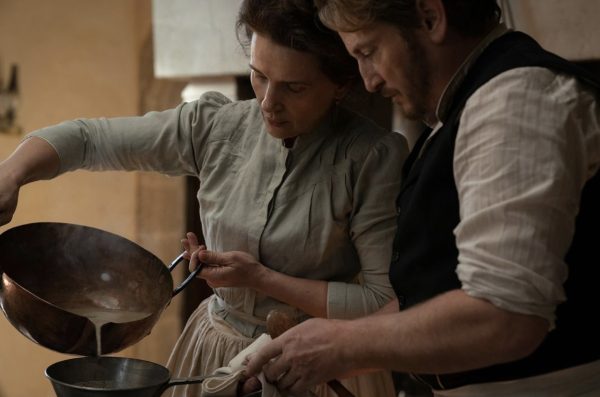A Heart Wrenching and Moving Depiction of Historical Brutality: “Till”
While everyone is aware of the history of racial violence in the United States, witnessing an ode to one of the most devastating examples of such bigotry was truly a moving experience. The lynching of 14-year-old Emmett Till infamously changed the course of the Civil Rights Movement in the United States, and the long-awaited film, “Till,” captures how influential his death was, thanks to the dedication of his mother, Mamie Till-Mobley. “Till” pulled at the heartstrings of the masses, as each actor delivered emotion and intensity through their roles. The film pivoted on the portrayal of Mamie Till-Mobley, which was nothing short of perfection. Danielle Deadwyler’s raw emotion demonstrates her commitment to portraying Mamie in the most authentic and moving way possible. Scenes that highlight the immense pain that Mamie suffered, such as the first time she witnessed her son’s mangled body, were coupled with depictions of her incredible strength, namely the courtroom scene where she faced Carolyn Bryant, the woman who caused Emmett’s death. “Till” did not settle for a less than precise representation of the motherly agony and fight for racial justice that were so prevalent in the case of Emmett Till.
The film opens with the mother and son laughing and singing in their pleasingly lit car — a scene that indicates the love that brews between the two. One can identify the beautiful childhood that Mamie built for Emmett (endearingly referred to as Bo) in the time leading up to his departure for Mississippi. The boy had never known hatred in his home and could not have suspected the brutal prejudice that ran throughout the American South. Mamie, while on trial defending her deceased son, articulates that her last-minute warnings of the racial disparities he would soon face were not going to rework the young boy’s perception of the world around him in the days before his departure. The portrayal of Emmett’s innocence is crucial to the meaning of his story and the film. Jalyn Hall, in playing Emmett Till, emphasizes the fact that the boy deeply loved his mother and family and was not capable of the atrocities that he was accused of. While Chicago wasn’t immune to racism, Till had not borne witness to the frequent hate crimes rummaging throughout the southern states. While with his cousins who had been conditioned to accept their harsh reality in Money, Mississippi, Emmett experienced a brutal wake up call to how lethal the venom of racism that ran through the veins of the United States truly was.
While watching “Till,” I was able to identify perceivable shifts in the grieving process of Mamie Till, which I believe was the most well-done aspect of the film. She viscerally experienced the anguish that came with her son’s death, as she fainted at the initial utterance. While her overwhelming heartache did not fade throughout the film, her strength began to shine through after she identifies the mangled body as that of her son. While this scene evokes a myriad of emotions, it gave rise to the most influential aspect of Emmett’s case: the photographs. Mamie required that the press photograph Emmett in his favorite suit to “Let the people see what they did to [her] boy.” The courage exhibited by the historical Mamie to put her son on display invoked an emotional response throughout the United States, and Deadwyler portrays her depth effortlessly. Deadwyler, when discussing the work of Mamie Till in an interview with BET Networks, explains, “She is the model to utilize media in a certain kind of way, to make it a global reckoning for folks to look at what’s happening to black people.” In her performance, the actress paid ode to the woman who entirely reworked the Civil Rights Movement for years to come and did so with grace.
“Till” places emphasis on generational familial ties, primarily through motherhood. In the way that Mamie cared deeply for her deceased son, her mother Alma Carthan, played by Whoopi Goldberg, lends a motherly hand to her grieving daughter. When Mamie was headstrong and set on going down to Mississippi to testify at Emmett’s trial, Alma expressed her concerns for her safety, but recognized that her objections would only be heard at limited volumes. This aspect of the film was very impactful as the maternal understanding between the two women ultimately gave Mamie the strength that she needed to face her son’s murders and go on to educate the masses about racial violence for the rest of her life. The ability of “Till” to portray the tragic story so authentically exceeded my expectations and led to wells of tears throughout the whole theater. This film was the most heartrending I’ve ever seen as it aided me in identifying with the pain of the Till family and the Black community at large.
















